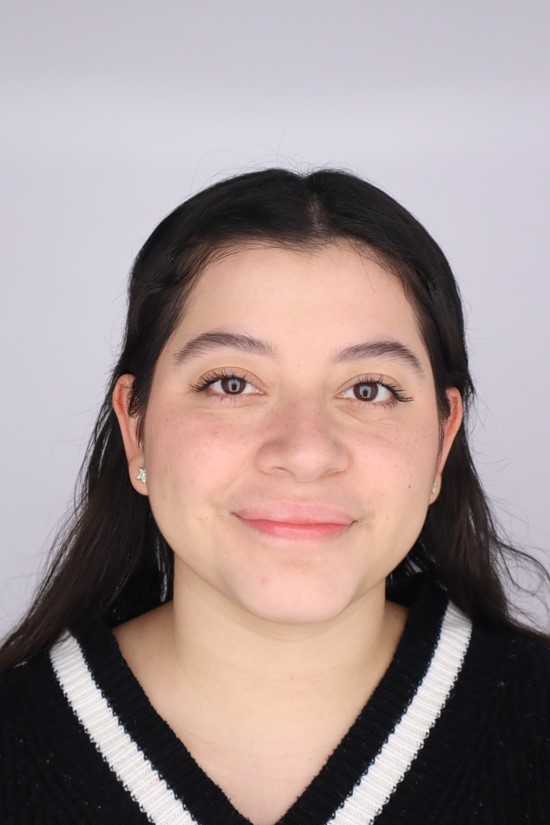Catherinne Mejia
M.S. Environmental & Ecological Engineering, 2025

Catherinne Mejia
M.S. Environmental & Ecological Engineering (2025)
Purdue University
Catherinne (“Cathy”) Mejia graduated from Purdue with her M.S. in Environmental & Ecological Engineering in December 2025. Cathy is originally from El Salvador, and holds a bachelor’s degree in Environment and Development Engineering from Zamorano University (Honduras). Her graduate research at Purdue, co-advised by Prof. Liddell and Prof. Deandrae Smith (Food Science), involved exploring the quality, safety, and environmental impacts of dielectric heating methods for drying and preserving agricultural products. As part of this work, she conducted a Life Cycle Assessment (LCA) of alfalfa hay drying methods along with nutritional and microbial analysis of the resulting products as dairy forage. Post-graduation, Cathy is taking her next career step as an environmental engineer at Wessler Engineering. In her free time, she enjoys baking, hiking, and spending time with friends.
Education:
- MS, Environmental & Ecological Engineering, Purdue University, 2025
- BS, Environment and Development Engineering, Zamorano University, Honduras, 2022
Link to Cathy’s MS Thesis: Evaluating Radiofrequency Drying for Alfalfa Dairy Forage Preservation: Feed Quality, Microbial Safety, and Sustainability (2025)
Selected Publications and Presentations:
- C. A. Mejia Melara, D. L. W. Smith, and H. P. H. Liddell, “Life-Cycle Impact Comparison of Two Industrial Drying Methods for Alfalfa Dairy Forage: Radiofrequency and Convective Drying,” presented at the 2024 American Center for Life Cycle Assessment (ACLCA) Conference, Snowbird, UT, September 24-26, 2024. Poster. (Honors: first place in student poster competition).
- I. Y. Lopez Pacheco, V. G. Ayala Moreno, C. A. Mejia Melara, J. Rodriguez Rodriguez, S. P. Cuellar Bermudez, R. B. Gonzalez Gonzalez, K. G. Coronado Apodaca, L. I. Farfan Cabrera, G. M. Gonzalez Meza, H. M. N. Iqbal, and R. Parra Saldivar, “Growth Behavior, Biomass Composition and Fatty Acid Methyl Esters (FAMEs) Production Potential of Chlamydomonas reinhardtii, and Chlorella vulgaris Cultures,” Marine Drugs 21 (2023) 450. doi: 10.3390/md21080450